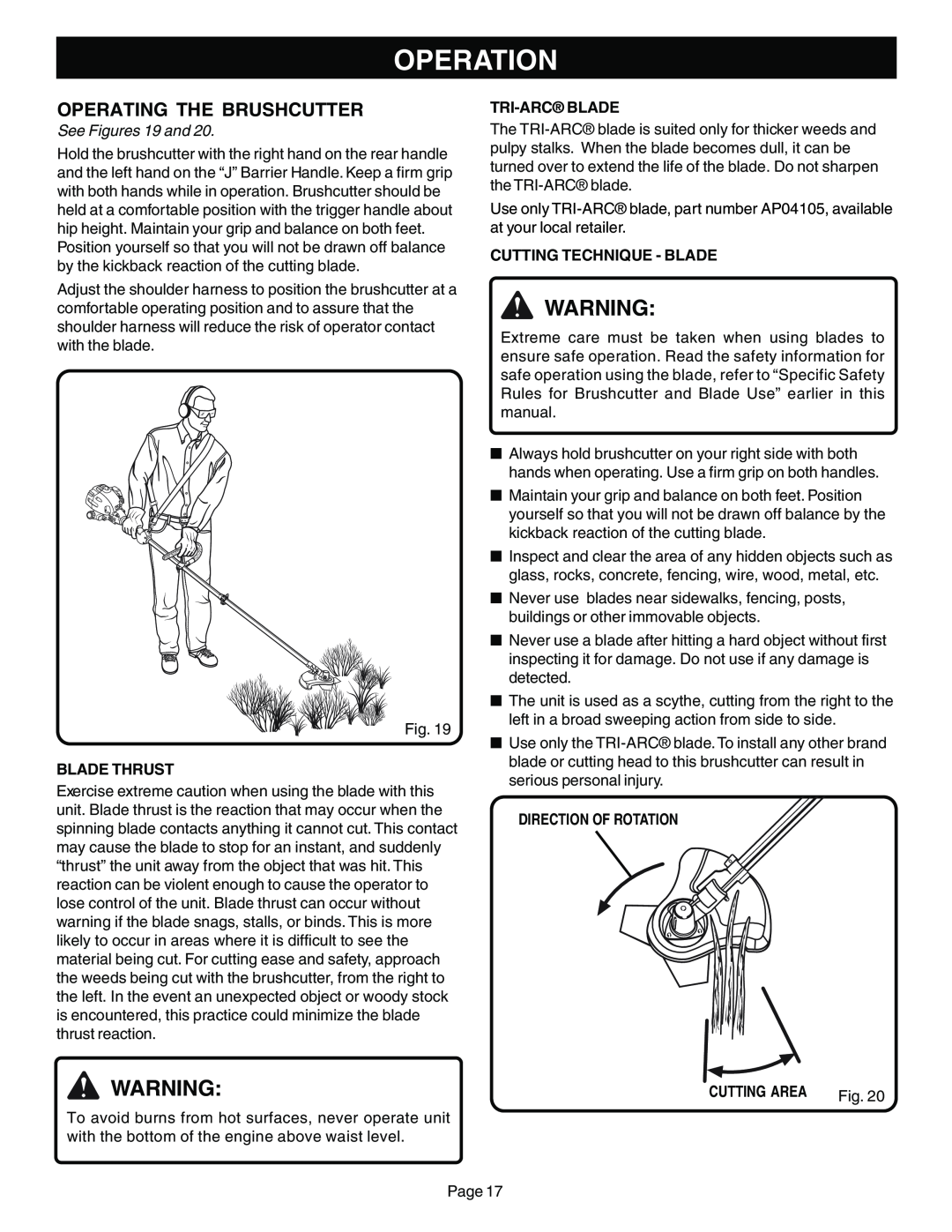
OPERATION
OPERATING THE BRUSHCUTTER
See Figures 19 and 20.
Hold the brushcutter with the right hand on the rear handle and the left hand on the “J” Barrier Handle. Keep a firm grip with both hands while in operation. Brushcutter should be held at a comfortable position with the trigger handle about hip height. Maintain your grip and balance on both feet. Position yourself so that you will not be drawn off balance by the kickback reaction of the cutting blade.
Adjust the shoulder harness to position the brushcutter at a comfortable operating position and to assure that the shoulder harness will reduce the risk of operator contact with the blade.
Fig. 19
BLADE THRUST
Exercise extreme caution when using the blade with this unit. Blade thrust is the reaction that may occur when the spinning blade contacts anything it cannot cut. This contact may cause the blade to stop for an instant, and suddenly “thrust” the unit away from the object that was hit. This reaction can be violent enough to cause the operator to lose control of the unit. Blade thrust can occur without warning if the blade snags, stalls, or binds. This is more likely to occur in areas where it is difficult to see the material being cut. For cutting ease and safety, approach the weeds being cut with the brushcutter, from the right to the left. In the event an unexpected object or woody stock is encountered, this practice could minimize the blade thrust reaction.
![]() WARNING:
WARNING:
To avoid burns from hot surfaces, never operate unit with the bottom of the engine above waist level.
TRI-ARC® BLADE
The
Use only
CUTTING TECHNIQUE - BLADE
![]() WARNING:
WARNING:
Extreme care must be taken when using blades to ensure safe operation. Read the safety information for safe operation using the blade, refer to “Specific Safety Rules for Brushcutter and Blade Use” earlier in this manual.
■Always hold brushcutter on your right side with both hands when operating. Use a firm grip on both handles.
■Maintain your grip and balance on both feet. Position yourself so that you will not be drawn off balance by the kickback reaction of the cutting blade.
■Inspect and clear the area of any hidden objects such as glass, rocks, concrete, fencing, wire, wood, metal, etc.
■Never use blades near sidewalks, fencing, posts, buildings or other immovable objects.
■Never use a blade after hitting a hard object without first inspecting it for damage. Do not use if any damage is detected.
■The unit is used as a scythe, cutting from the right to the left in a broad sweeping action from side to side.
■Use only the
DIRECTION OF ROTATION
CUTTING AREA | Fig. 20 |
|
Page
